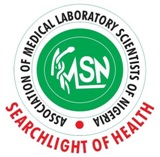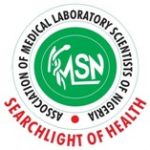A few months ago I received a Google Alert about the West Africa E-Leaning Conference and Exhibition (WAeLCE) to be held at the University of Lagos on March 27-28. Yesterday, I received another alert about the conference, this time an article from the Guardian Nigeria. In Addressing Challenges of Nigeria’s e-Learning Initiatives, Adeyeni Adepetuni discussed the role information communication technology (ICT) and eLearning plays in Nigeria.
Today’s educational world depends on ICT; there are opportunities for close co-operation with colleagues in the same or even other fields though networking and internet services; educators are challenged to new methods of acquiring knowledge through knowledge sharing and are ultimately connected to the world.
The context to this challenge can be summarized by the state of supply versus demand as described in the conference press release: “only 28% out of 1.5 million prospective applicants gained admission into Nigerian universities in 2012.” As a result, ICT is critical in addressing unmet demand and has the potential to revolutionize the field of education.
I found Adepetuni’s comments on the need for new educational standards relevant to our project; the K4Health/Nigeria Web-Based Continuing Professional Development (CPD) Program for Medical Laboratory Scientists.
By and large, with the evolution of IT, learning and teaching cannot credibly take place without those involved being leaders in the handling of ICT tools. The modern world is an information society, driven by a complex set of digital device and telecommunication networks as an all-encompassing platform. The educational system needs to operate in accordance with this global standard, which makes ICT as an indispensable tool for the 21st century teaching and learning in Nigeria.
The article and a similar review in the newspaper Punch, reflect findings from our project research. In February, we conducted two focus groups with Medical Laboratory Scientists who have completed at least one CPD accredited eLearning course. Participants revealed the eLearning courses were an effective way to convey information and important in bringing MLS online for their professional development.
The important thing is that some of us that have not been using internet, the laptop, or browsing on the phone, or not used to the Internet. This program is getting them online now. I know one or two people like that. It’s bringing people to the Net; getting them to use the computer more.
Additional feedback received from the focus groups and a subsequent online survey has been vital to the quality improvement process. We are in the process of implementing several recommendations including providing eLearners with the ability to download courses in PDF format for easier review and reference. Suggestions related to course topics and the depth of content will be incorporated into the sustainability plan and standards for future course development.
As I went through the WAeLCE presentations posted online I was glad to see a detailed case was made for educators to adapt their teaching methods to the new demands of their students and today’s ever changing, interconnected world.
What do you think about the need and value of eLearning within the context of higher education? Post your thoughts in the comment section below.






